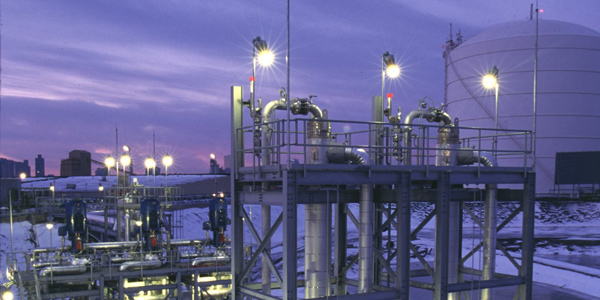By Michael Kuser
FERC on Friday tentatively accepted a cost-of-service agreement between Exelon and ISO-NE for Mystic Generating Station Units 8 and 9, ordering an expedited hearing process on unresolved issues (ER18-1639).
The order drew sharp rebukes from Commissioners Robert Powelson and Richard Glick, both of whom called it “yet another rush to judgment.”
The agreement would allow the gas-fired units in Massachusetts an annual fixed revenue requirement of almost $219 million for capacity commitment period 2022/23 and nearly $187 million for 2023/24. But the commission found the information Exelon provided to support those figures insufficient, setting for hearing the company’s proposed capital expenditures, fuel costs, and operations and maintenance expenses.
Notably, FERC did not hold the hearing in abeyance and appoint a settlement judge, as it often does when it suspends an accepted filing. Instead, it ordered an expedited hearing schedule, citing Exelon’s Jan. 4, 2019, deadline for deciding whether to retire the units and the beginning of Forward Capacity Auction 13 on Feb. 4. The agreement goes into effect June 1, 2022, subject to the outcome of the hearing.
The commission ordered the presiding judge to certify the record by Oct. 12, with initial briefs due Nov. 2 and reply briefs Nov. 16.
ISO-NE’s Tariff does not allow for reliability-must-run agreements, and only allows cost-of-service agreements to respond to local transmission security issues. FERC on July 2 denied the RTO’s request for a Tariff waiver to allow for the Mystic agreement. Exelon said in March that it would retire the 2,274-MW plant when its capacity obligations expire on May 31, 2022 (ER18-1509). (See FERC Denies ISO-NE Mystic Waiver, Orders Tariff Changes.)
The commission instead ordered the RTO to revise its rules to allow cost-of-service agreements for facilities needed to address fuel security issues, or show cause as to why it shouldn’t have to (EL18-182). ISO-NE’s response is due Aug. 31.
Powelson and Glick also dissented in that order, and both cited it in their dissents last week.
“The commission is not even waiting for stakeholders’ responses to the show cause order it issued last week before plunging ahead with its plans to bail out Mystic and Distrigas,” Glick said. Exelon included in the agreement the costs of purchasing fuel from and operating the nearby Distrigas LNG import terminal, which it is buying from ENGIE North America.
“By setting the agreement for modified settlement and hearing procedures, the majority is expressing a preference for a short-term cost-of-service mechanism to address fuel security,” Powelson said. “That message may have been implied in the waiver order, but after today’s order there is no question as to the majority’s direction. …
“Over the next few months, interested participants will focus time and energy on the agreement in an attempt to reach consensus on a host of challenging issues. Because the commission has failed to narrow the issues to be addressed in this proceeding, today’s order has opened a proverbial can of worms. Thus, instead of working collaboratively to respond to the commission’s Section 206 inquiry or consider more cost-effective alternatives, stakeholders will be working on the Mystic agreement.”
Distrigas, Cost Allocation
While FERC said it could not determine whether the agreement was just and reasonable, it did comment on several issues raised by protesters in the proceeding.
Several protesters questioned whether including an entire LNG facility in a cost-of-service rate violated the Federal Power Act.
The commission said it would set the matter for hearing, but “in advance of the hearing, we find unpersuasive arguments that the FPA prohibits any recovery of the fuel supply charge for the Distrigas facility.”
“This finding as to jurisdiction does not mean that Mystic is entitled to recover all costs that it claims in connection with the Distrigas facility,” the commission said. “Whether individual components of a cost-of-service rate, including fuel-related costs, are recoverable turns on whether they are just and reasonable, not whether the commission has regulatory authority over all aspects of those rate components.”
Other protesters were concerned that there was no cost allocation mechanism in the agreement. FERC noted that in its show cause order, it directed ISO-NE to include such a mechanism in any Tariff revisions the RTO proposes.
The commission also said that while capital expenditures would be subject to hearing, the Mystic units should be allowed to collect actual prudently incurred costs, subject to true-up.
“We find that given the inherent difficulty in projecting costs in advance of the agreement’s effective date, and the concerns raised as to whether certain expenditures will be necessary to keep the Mystic units operational during the proposed service period, a true-up mechanism is necessary to ensure that the rates established reflect actual costs incurred,” the commission said.
The order directed the participants to present evidence regarding the appropriate design of the true-up mechanism in the agreement, noting that ISO-NE may also address the related clawback provision in EL18-182.





